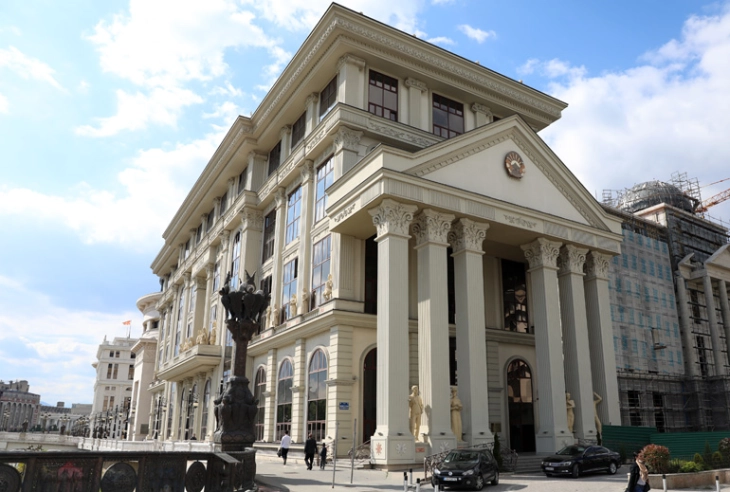MFA proposes updated Law on Restrictive Measures to include US, UK legal acts as basis for sanctions
- The Ministry of Foreign Affairs is starting a public debate on proposed amendments to the Law on Restrictive Measures, which would introduce US and UK legal acts as a basis for local courts to order legal sanctions be levied against individuals and companies, the country's top diplomat Bujar Osmani told reporters Thursday.

Skopje, 11 January 2024 (MIA) — The Ministry of Foreign Affairs is starting a public debate on proposed amendments to the Law on Restrictive Measures, which would introduce US and UK legal acts as a basis for local courts to order legal sanctions be levied against individuals and companies, the country's top diplomat Bujar Osmani told reporters Thursday.
"The Law on Restrictive Measures regulates imposing, modifying and terminating restrictive measures," FM Osmani said, adding that the basis for those sanctions until now were United Nations Security Council resolutions, European Union legal acts, decisions of several international organizations the country was a member of, and requests of other countries' competent authorities regarding terrorism and weapons proliferation.
"What we propose in these amendments to the Law," Osmani said, "is to add the legal acts of the United States and the legal acts of the United Kingdom as a basis for imposing restrictive measures in the state."
Osmani said besides international security and democracy threats, the updated law would sanction corruption, abuse of office and hybrid threats.
Also, he said, after receiving evidence of such wrongdoing, the Prosecutor's Office would need to immediately launch an investigation and if the probe led to charges being filed in a court of law, the updated Law on Restrictive Measures would temporarily prevent the individual from holding public office or the company from participating in public procurement.
The US Department of State recently added on its "blacklist" several more familiar names: Former Deputy Prime Minister for Economic Affairs Kocho Angjushev, businessmen Orce Kamchev and Sergey Samsonenko, Struga Mayor Ramiz Merko. They joined fugitive former Prime Minister Nikola Gruevski and the convicted former head of the country's Administration for Security and Counterintelligence Sasho Mijalkov.

US Ambassador Angela Aggeler, following Angjushev's corruption designation, said this was further proof the United States will continue to sanction corrupt actors in the country, regardless of their position, political affiliation, or timing of the abuses.
"More designations will be coming, but the fact is that our efforts and our sanctions cannot fix North Macedonia’s epidemic of corruption. Ultimately, it is up to the officials and citizens of this country to demand accountability and change," she said at the time.
In November, the government announced it was working on an initiative to change legislation related to sanctions so that the scope could be expanded to include US sanctioned persons in addition to UN and EU decisions.
Deputy Prime Minister in charge of Good Governance Policies Slavica Grkovska told reporters in late December the government was creating legal conditions for sanctioning any individuals blacklisted by other countries in relation to corruption, organized crime, terrorism, and hybrid threats. mr/







